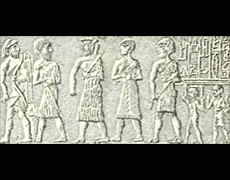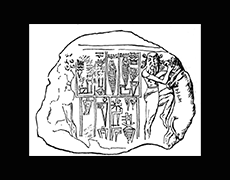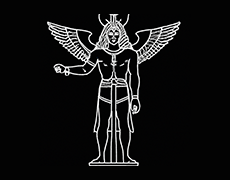
The number seven held a significant place in Sumerian religion and culture, which can be found in many aspects of their society.
Cosmology
In Sumerian cosmology, there were seven levels of the universe: the earth, the atmosphere, the sky, the heavenly oceans, the abode of the gods, the abode of the dead, and the infinite.
Furthermore, the gods lived in a seven-story temple, with the top level being the home of the god of heaven, Anu.
Days of the Week
The number seven also had religious significance in the number of days in a week. Sumerians had a seven-day week, with each day dedicated to a specific god or goddess. For example, the seventh day was devoted to the god of rest and wisdom, Enlil.

Epic of Gilgamesh
In addition to cosmology and religious beliefs, seven was present in other aspects of Sumerian culture. For example, the epic of Gilgamesh, one of the earliest known works of literature, is divided into seven sections.

Scribes
The Sumerians also had a seven-tier hierarchy of scribes, with the top tier responsible for religious texts.
Enki
Finally, the number seven also appears in Sumerian art, such as in seals, where the god of wisdom, Enki, is often depicted with seven streams flowing from his shoulders.

